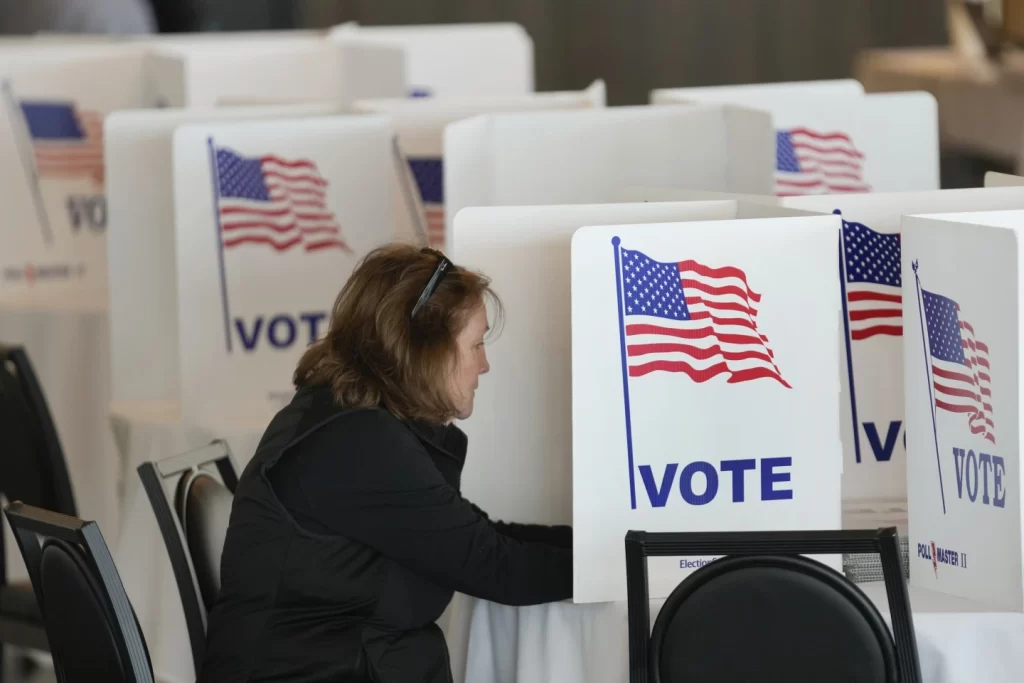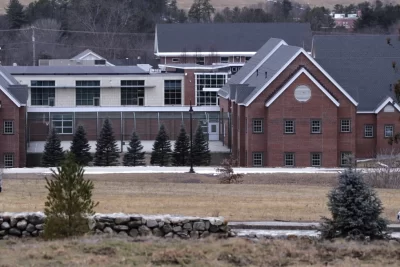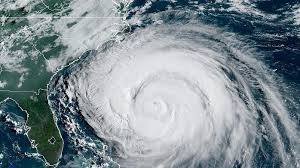
ATLANTA — Voting machines reversing votes. More voters registered than people eligible. Large numbers of noncitizens voting.
With less than two weeks before Election Day, a resurgence in conspiracy theories and misinformation about voting is forcing state and local election officials to spend their time debunking rumors and explaining how elections are run at the same time they’re overseeing early voting and preparing for Nov. 5.
“Truth is boring, facts are boring, and outrage is really interesting,” says Utah’s Lt. Gov. Deidre Henderson, a Republican who oversees elections in her state. “It’s like playing whack-a-mole with truth. But what we try to do is just get as much information out there as possible.”
This year’s election is the first presidential contest since former President Donald Trump began spreading lies about widespread voter fraud costing him reelection in 2020. The false claims, which he continues to repeat, have undermined public confidence in elections and in the people who oversee them among a broad swath of Republican voters . Investigations have found no widespread fraud or manipulation of voting machines four years ago, and each of the battlegrounds states where Trump disputed his loss has affirmed Democrat J oe Biden’s win.
In the past week, U.S. Rep. Marjorie Taylor Greene claimed a voting machine had changed a voter’s ballot in her Georgia district during early voting, and Elon Musk, the billionaire owner of the social media platform X, has promoted various conspiracy theories about voting machines and voter fraud both online and at a rally for Trump in Pennsylvania.
The floodgates are “very much” open, said David Becker, a former U.S. Justice Department lawyer who now leads the Center for Election Innovation and Research, a nonpartisan group that works with state and local election officials.
“This is making election officials’ lives much more difficult,” he said. Eric Olsen, who oversees elections in Prince William County, Virginia, said combatting misinformation has become an important and challenging part of the job.
“It’s really difficult from our position, a lot of times, because social media feels like a giant wave coming at you and we’re in a little canoe with a paddle,” he said. “But we have to do that work.”
On the campaign trail, Trump has repeatedly attempted to sow doubt about the upcoming election – something he did ahead of his two previous bids for the White House. Even after he won in 2016, he claimed he had lost the popular vote because of a flood of illegal votes and he formed a presidential advisory commission to investigate. The commission disbanded without finding any widespread fraud.
This year, Trump claims that Democrats will cheat again and uses “Too Big to Rig” as a rallying cry to encourage his supporters to vote. Election experts see it as laying the groundwork to again challenge the election should he lose.
Spreading bogus accusations about elections has other consequences. It’s already led to a wave of harassment, threats and turnover of election workers as well as the violent attack on the U.S. Capitol on Jan. 6, 2021.
The conspiracy theories that have surfaced in recent weeks are not new. There have long been claims of “vote flipping,” with the most recent ones surfacing in Georgia and Tennessee.
A claim in Georgia’s Whitfield County was highlighted by Greene on Alex Jones’ “InfoWars” show. Jones has a history of spreading falsehoods and was ordered to pay $1.5 billion for his false claims that the 2012 Sandy Hook elementary school massacre was a hoax.
County election officials issued a statement, noting the case involved one voter out of 6,000 ballots that had been cast since early voting began. The ballot was spoiled, and the voter cast a replacement that was counted. Officials said there was no problem with the voting machine.
Gabriel Sterling, chief operating officer for the Georgia secretary of state’s office, said every report they’ve seen so far of someone saying their printed ballot didn’t reflect their selections on the touchscreen voting machine has been a result of voter error.
“There is zero evidence of a machine flipping an individual’s vote,” he said. “Are there elderly people whose hands shake and they probably hit the wrong button slightly and they didn’t review their ballot properly before they printed it? That’s the main situation we have seen. There is literally zero — and I’m saying this to certain congresspeople in this state — zero evidence of machines flipping votes. That claim was a lie in 2020 and it’s a lie now.”
In Shelby County, Tennessee, county election officials said human error was to blame for reports of votes being changed. Voters had been using their fingers instead of a stylus to mark their selections on voting machines, officials said.




